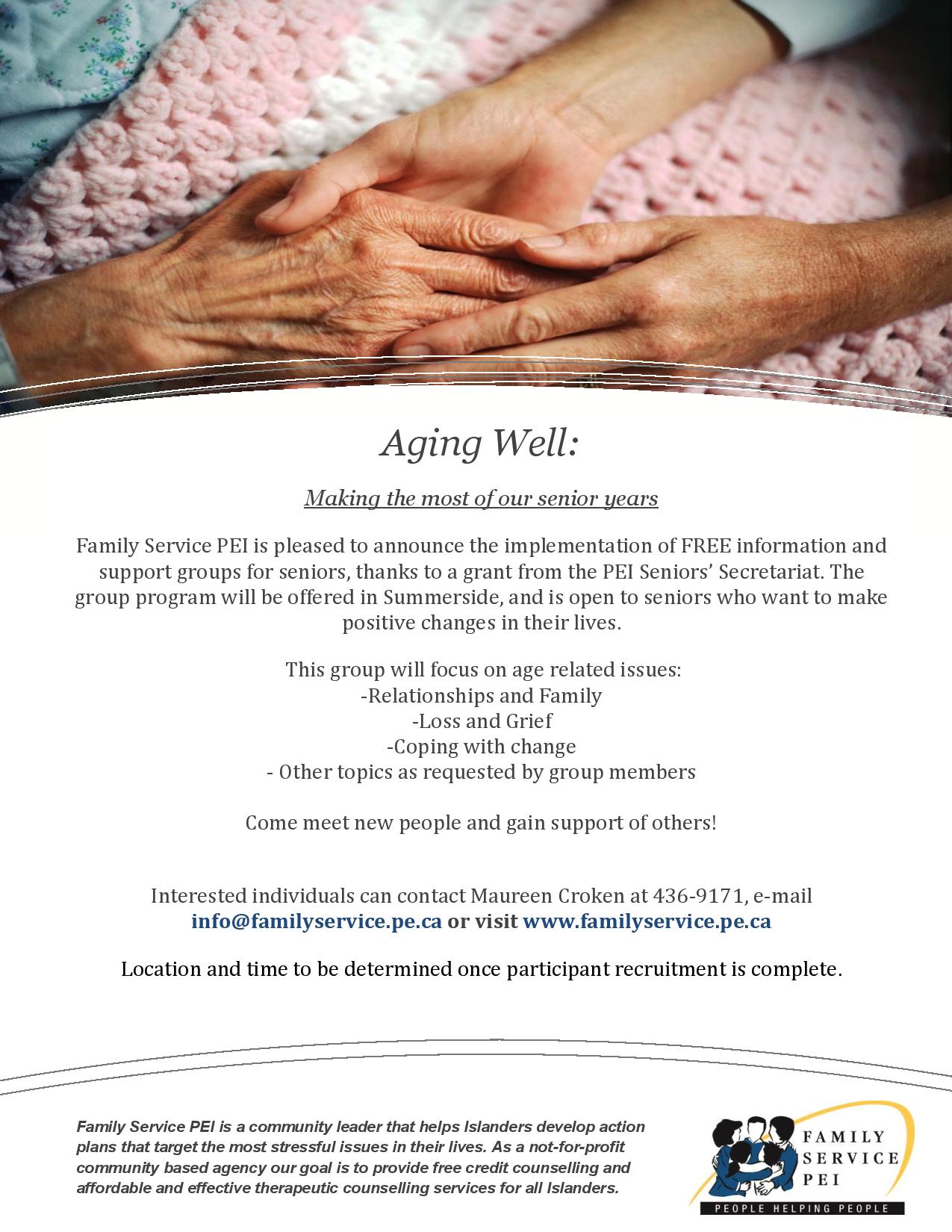By: Christina Campbell, Family Service PEI
 Everyone’s relationship is unique, and people come together for many different reasons. A strong, healthy relationship can be one of the best supports in your life. Most of us have to work consciously to master the skills necessary to make our relationship flourish.
Everyone’s relationship is unique, and people come together for many different reasons. A strong, healthy relationship can be one of the best supports in your life. Most of us have to work consciously to master the skills necessary to make our relationship flourish.
There are some things that good relationships have in common. Knowing the basic principles of healthy relationships helps keep them meaningful, fulfilling and exciting in both happy times and sad:
- Staying involved with each other. Some couples are not truly related or emotionally connected, but manage to work together. Therefore, while it may seem stable on the surface, lack of involvement and communication increases distance. When you need to talk about something important, the connection and understanding may no longer be there.
- Getting through conflict. The key in a strong relationship is not to be fearful of conflict. You need to be safe to express things that bother you without fear of retaliation, and be able to resolve conflict without humiliation, or insisting on being right.
- Keeping outside relationships and interests alive. No one person can meet all of our needs, and expecting too much from someone can put a lot of unhealthy pressure on a relationship. Having friends and outside interests not only strengthens your social network, but brings new insights and stimulation to the relationship.
- Communicating. Good communication is a fundamental part of a healthy relationship. Honest, direct communication is a key part of any relationship. When both people feel comfortable expressing their needs, fears, and desires, trust and bonds are strengthened. Non verbal cues—body language like eye contact, leaning forward or away, or touching someone’s arm—are critical to communication.
- Mutual respect. Respect in a relationship means that each person values who the other is and understands — and would never challenge — the other person’s boundaries.
- Keep physical intimacy alive. While touch is a key part of a healthy relationship, it’s important to take some time to find out what your partner really likes. Unwanted touching or inappropriate overtures can make the other person tense up and retreat—exactly what you don’t want
- Spend quality time together. It’s critical for your relationship to make time for yourselves. If you don’t have quality time, communication and understanding start to erode. Keeping a sense of humor can actually help you get through tough times, reduce stress, and helps you work through issues more easily.
- Healthy relationships are built on give and take. It takes work on each person’s part to make sure that there is a reasonable exchange and compromise.
- Respectfully resolve conflict. Conflict is inevitable in any relationship, but to keep a relationship strong, both people need to feel they’ve been heard. The goal is not to win but to resolve the matter with respect and love.
- Expect ups and downs. It’s also important to recognize that there are ups and downs in every relationship. You won’t always be on the same page. Different people cope with stress differently, and misunderstanding can rapidly turn to frustration and anger.
A healthy relationship requires more than some give and take, and it is absolutely within your reach if you and your partner are willing to do a bit of work. If you and your partner have decided that you want to live together and that you are right for each other, all the work will definitely be worth it in the long run.






